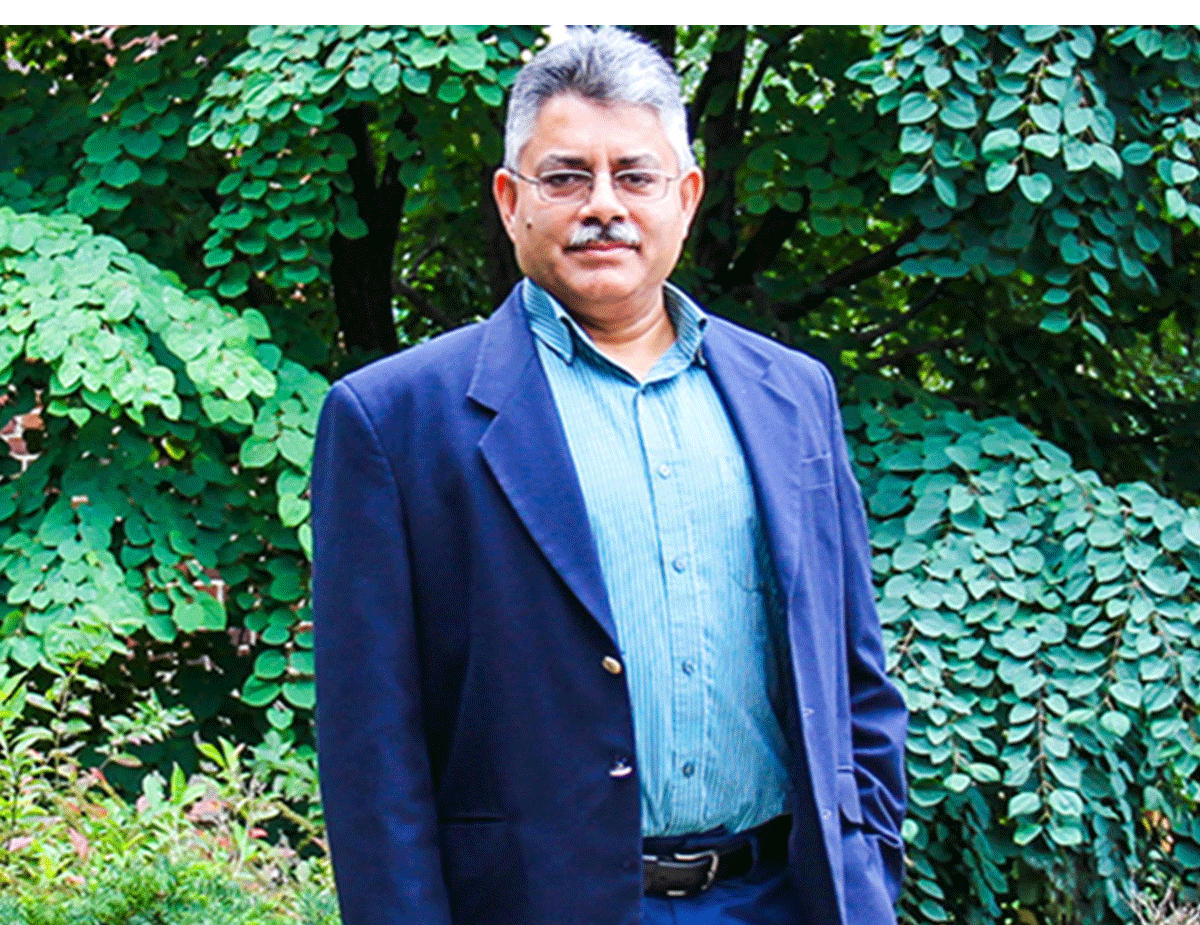 Sanjay Srinivasan, director of the Penn State College of Earth and Mineral Sciences (EMS) Energy Institute
Sanjay Srinivasan, director of the Penn State College of Earth and Mineral Sciences (EMS) Energy Institute
Sanjay Srinivasan, professor of petroleum and natural gas engineering, has been named director of the Penn State College of Earth and Mineral Sciences (EMS) Energy Institute (EI), effective July 1.
Srinivasan has served as head of the EMS John and Willie Leone Family Department of Energy and Mineral Engineering (EME) since 2017 and will step down from the position to become the EI director.
“The Energy Institute has a long history of excellent research, good infrastructure—some pilot scale facilities that other institutions can only dream about—a fairly big group of very talented faculty, researchers, and students who work on pertinent, important issues in the energy sphere and a good model and staff to support research and innovation,” Srinivasan said. “It’s a great place to be.”
He replaces current EI interim director Bruce Miller, who has served in that role since June 2020 when Chunshan Song left the University after fourteen years leading the institute.
“We thank Bruce for leading EI through a time of transition and are fortunate to have Sanjay to step into the director role and continue the institute’s important mission,” said Lee Kump, John Leone Dean in the College of Earth and Mineral Sciences. “Sanjay has done an outstanding job in the Department of Energy and Mineral Engineering and leaves the department on good footing. We look forward to the energy leadership and research experience he brings to EI.”
The institute is a leading research and development organization focused on energy science and engineering with work ranging from challenges related to fossils fuels to exploring new technologies for alternative energy. EI leads efforts to diversify the nation’s energy sources, improve energy efficiency, and expand the use of indigenous resources while relying less on non-domestic energy sources.
“I think what drew me to this position in the first place is that it’s a really exciting time to be working in the energy sphere,” Srinivasan said. “There are important discussions happening about the optimum mix of energy sources—whether conventional or renewable—about climate change and the impact it will have on the resiliency of energy systems and about environmental justice how to roll out these new energy systems in a just and equitable way.”
Srinivasan said he is also excited about outreach opportunities discussing technological, economic, and policy issues around climate change and the transition to new energy sources.
“For all that we think about energy and its important position in our social landscape, the average person may not be as familiar with the energy intensity of different things that they do in their day-to-day life,” he said. “So there is an opportunity there to engage with people and talk with them about the scope of the challenge and what they can do to address some of these issues.”
Srinivasan came to Penn State in 2015 to serve as the inaugural John and Willie Leone Family Chair in Energy and Mineral Engineering and in 2017 became department head.
“I’ve been very fortunate to lead this complex department,” Srinivasan said. “We have policy economics decisions analysts who work together with petroleum and natural gas engineers and solar engineers and people in alternative energy biomass production and mining for resource extraction and then environmental systems people who look at the net impact of all these operations. I walk into this position at the Energy Institute with the background of how to manage these kinds of complex dynamics between education, research, and outreach.”
Srinivasan’s research interests are in spatial statistics, development of geostatistical techniques for data integration and modeling of complex geological systems, uncertainty quantification, and transfer of uncertainty to decision-making. He and his students develop techniques for monitoring the migration of the carbon dioxide plume during geologic sequestration, identifying sweet spots in unconventional plays by synthesizing information from multiple sources and at multiple scales, and investigating subsurface couplings that result in natural hazards such as sinkholes.
Before coming to Penn State, he was a professor in the Department of Petroleum and Geosystems Engineering at the University of Texas at Austin and has also served on the faculty in the Chemical and Petroleum Engineering Department at the University of Calgary.
Srinivasan received his bachelor of science degree in petroleum engineering from the Indian School of Mines, his master’s degree in petroleum engineering from the University of Southern California and his doctorate in petroleum engineering from Stanford University.

